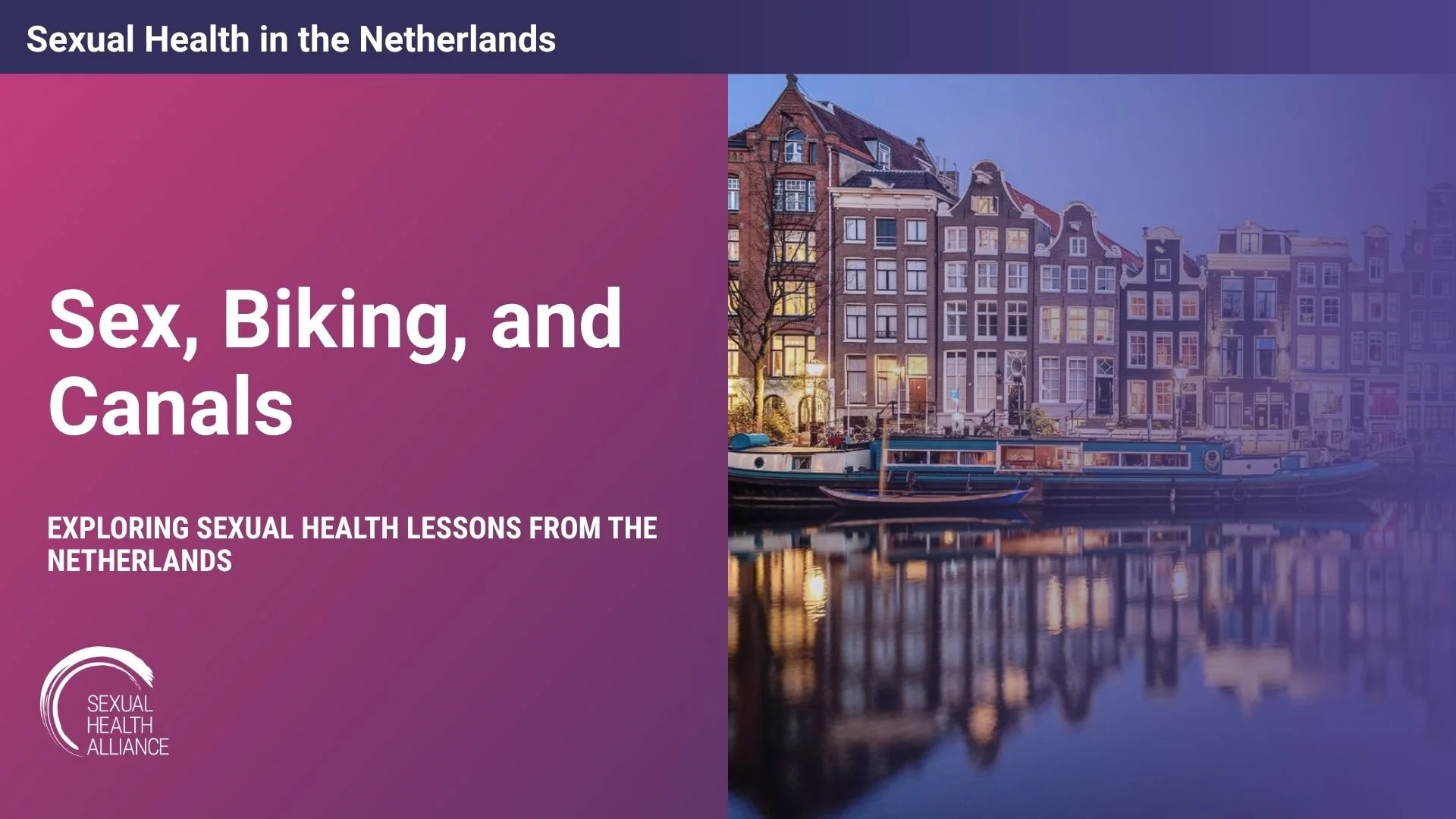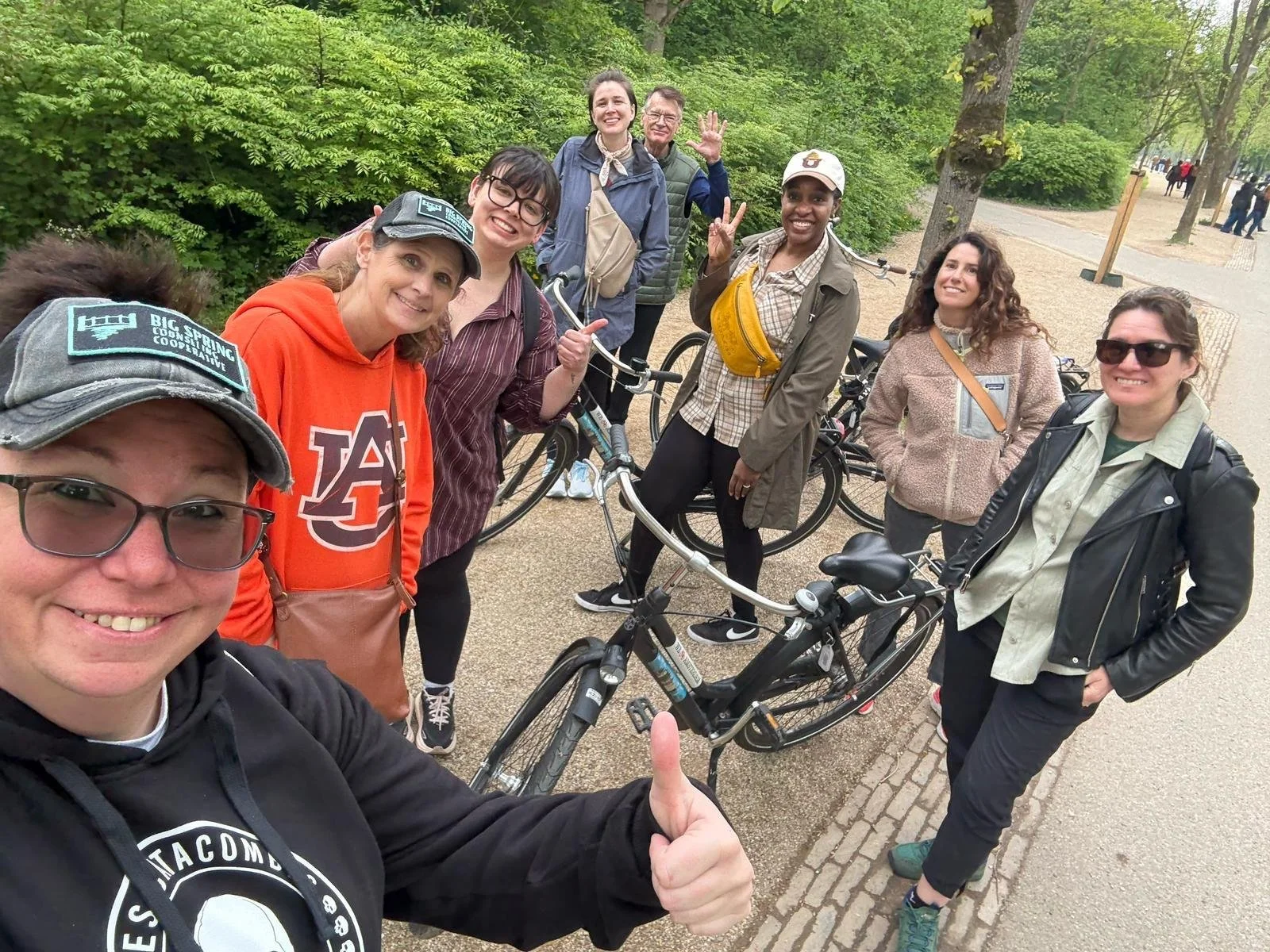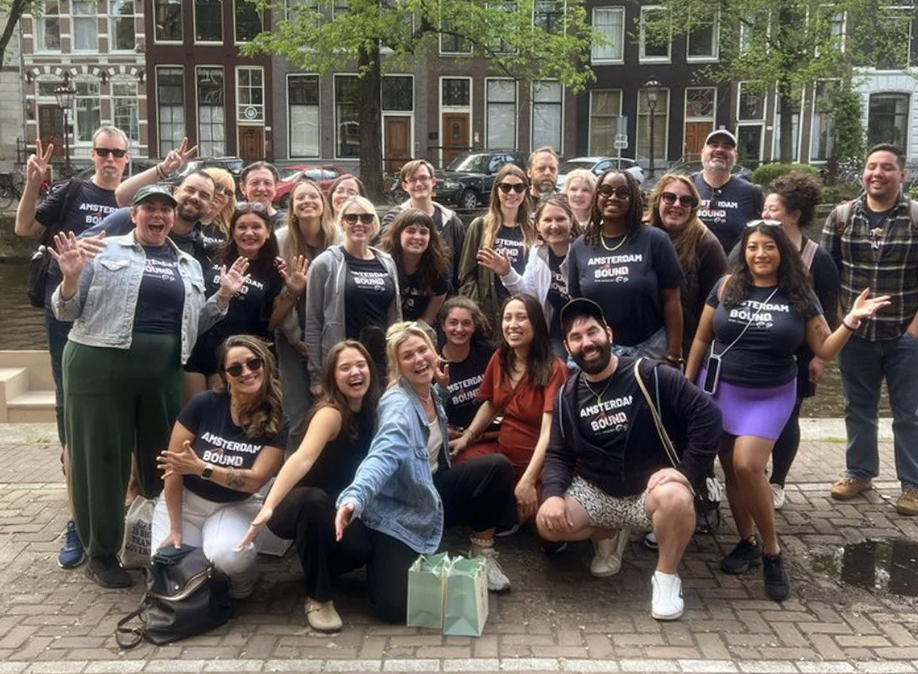The Netherlands is often celebrated as one of the most sexually healthy countries in the world, but what makes it so unique? From progressive policies to inclusive education, the Dutch approach to sexuality offers lessons that are both inspiring and practical for sexual health professionals everywhere.
For the past four years, SHA has organized study abroad trips to Amsterdam to explore the sexual attitudes, education, and practices that shape Dutch culture. These experiences combine learning from leading sexual experts with hands-on immersion: think biking through one of the world’s most bike-friendly cities, cruising the canals, visiting sex museums, and, of course, enjoying plenty of Dutch food. It’s no wonder this has become one of our most popular destinations for sexual health professionals seeking both education and cultural experience.
If you haven’t had the chance to join yet, don’t worry – SHA will be heading back next year to learn in one of the most sex-positive countries on the map. In this blog, we’ll share some of the fascinating lessons from the Netherlands and reflect on why it’s so important for sexual health professionals to expand our global perspective and bring those insights back home.
Fun facts on Sexual Health in the Netherlands
Pioneers in equality: The Netherlands was the first country to legalize same-sex marriage in 2001, a milestone that signaled global leadership in LGBTQ+ rights.
Early sex education: Dutch children begin age-appropriate sexuality education as early as 4 or 5, compared to around 12 in many other countries.
A history of curiosity: Amsterdam is home to the world’s first and oldest sex museum, opened in 1985. Or, if you prefer history, you can see a 200-year-old condom at the Netherlands’ national museum.
Red Light District tourism: Each year, about 2.5 million tourists visit de Wallen, Amsterdam’s famous Red Light District.
High sexual satisfaction: Surveys consistently show that Dutch adults report some of the highest rates of sexual satisfaction in the world.
A culture of openness
As these fun facts suggest, the Netherlands is widely recognized for its openness toward sex. Sexual development is seen as a natural part of growing up, and conversations about sex are normalized from an early age. Compared to the U.S., Dutch parents are far more likely to discuss sexuality with their children, while Dutch media openly represents sexual topics without stigma.
This openness doesn’t just happen by chance. It’s embedded in education, media, healthcare, and public policy, creating a culture in which sex is treated as a healthy, natural part of life rather than a taboo subject.
Comprehensive sex education in the Netherlands
One of the strongest contributors to Dutch success in sexual health is their lifelong approach to sex education. Since 1993, age-appropriate sex education has been mandatory in all schools, grounded in principles of diversity, respect, and consent.
Key features include:
Teaching about pleasure and relationships—not just risk.
Mandatory pre-service training for teachers, plus additional government-supported training.
Curriculum that encourages respect for all sexual orientations and identities.
This approach stands in sharp contrast to the U.S., where sex education remains fragmented, ranging from abstinence-only programs to risk-focused approaches. By emphasizing communication, consent, and pleasure alongside health risks, Dutch students grow up equipped to navigate relationships and sexual choices confidently.
Sexual Health Outcomes
Because sexual health is addressed early, outcomes in the Netherlands are among the best in the world.
Teen pregnancy rates are less than one-sixth of those in the U.S.
STI testing is widely accessible, with resources specifically designed for adolescents.
A national survey found that 80% of Dutch adults enjoy sex very much, and 70% reported sexual activity in the past six months.
94% agree consent should always be checked.
86% believe women should have the right to decide on abortion.
Most Dutch people support mandatory sexual education in schools.
Dating apps are mainstream, with 1 in 10 people using one in the past six months.
While gaps remain, the evidence is clear: open, stigma-free conversations translate into healthier outcomes.
Sexual Health in the Netherlands: Policy and Health Care
The Netherlands supports sexual health not only through education but also via policy and healthcare infrastructure:
Universal healthcare ensures access to contraception, STI testing, and reproductive services.
The country consistently ranks among the top for gender equality.
Policies such as the 2017 Gender & LGBTI Equality Plan and the 2019 anti-discrimination law for intersex and trans individuals demonstrate a commitment to equity and inclusion.
This holistic approach, combining education, healthcare access, and supportive policy, creates a society in which sexual health and rights are prioritized and normalized.
Sex work
In the Netherlands, consensual sex work is legal and regulated. Workers and business owners must obtain permits, which helps improve safety, labor conditions, and health outcomes.
Amsterdam’s Red Light District, de Wallen, is world-famous as a tourist destination, but for locals, sex work is also a normalized and regulated part of daily life. This pragmatic approach allows sex workers to access healthcare, labor protections, and support services while reducing the stigma often associated with sex work in other countries.
Conclusion
SHA’s study abroad trips offer a unique chance to see firsthand how Dutch culture, education, and policy come together to produce some of the best sexual health outcomes in the world. The key lesson? Open, stigma-free conversations are foundational to sexual well-being.
For sexual health professionals, exploring models like the Netherlands not only broadens our perspective but also provides practical strategies we can adapt to our own communities –- from improving sex education programs to fostering inclusive, nonjudgmental conversations in clinical practice.
Whether it’s biking along the canals, visiting museums, or learning from leading experts, these experiences demonstrate that sexual health is about more than biology; it’s about culture, policy, education, and everyday social norms.
Want to join in? Become an In-Demand Sexual Health Professional and connect with colleagues from around the world on next year’s study abroad trips!
Written by Emma Sell-Goodhand, MPH
Emma is a doctoral student and Global One Health Fellow at North Carolina State University studying adolescent sexual health. She brings prior experience as a Technical Advisor at the World Health Organization.
Want to become an in-demand sexual health professional? Learn more about becoming certified with SHA!







